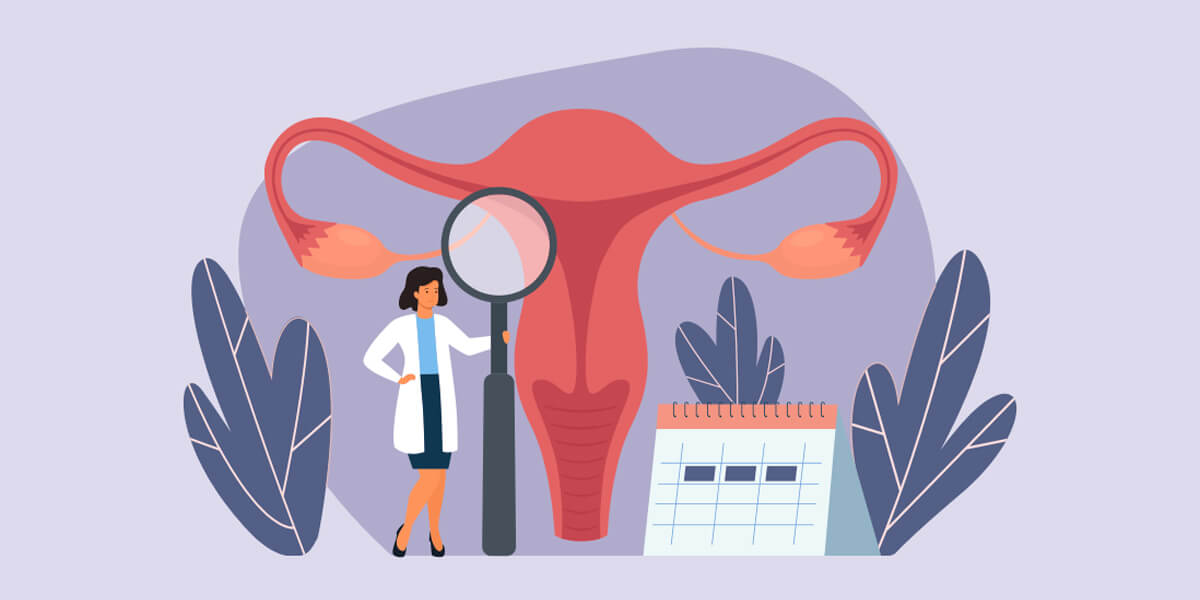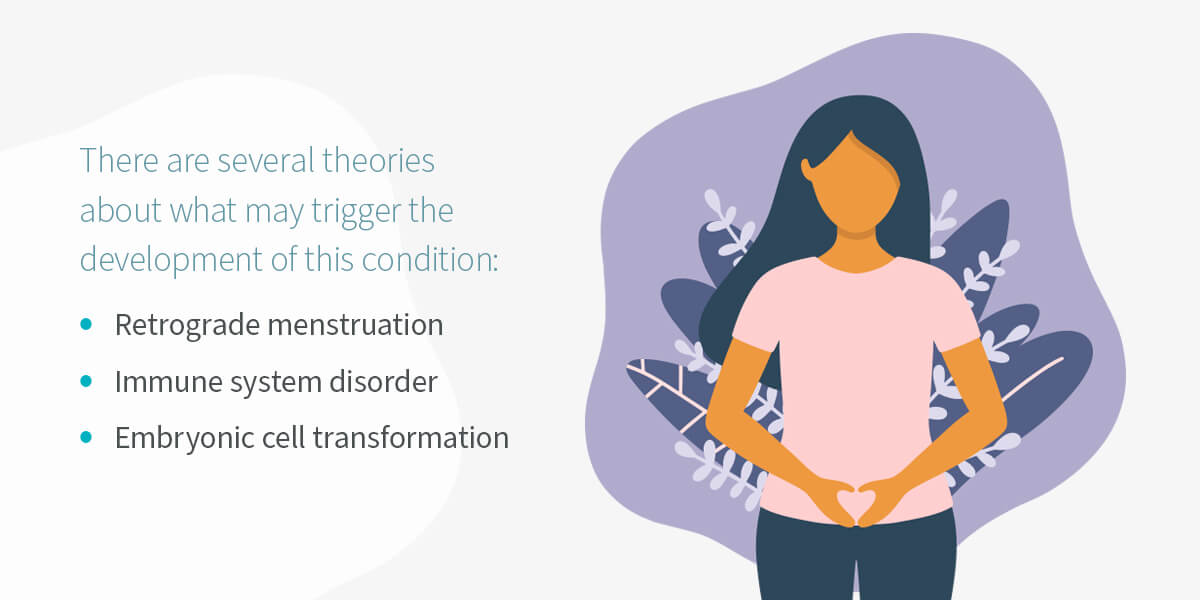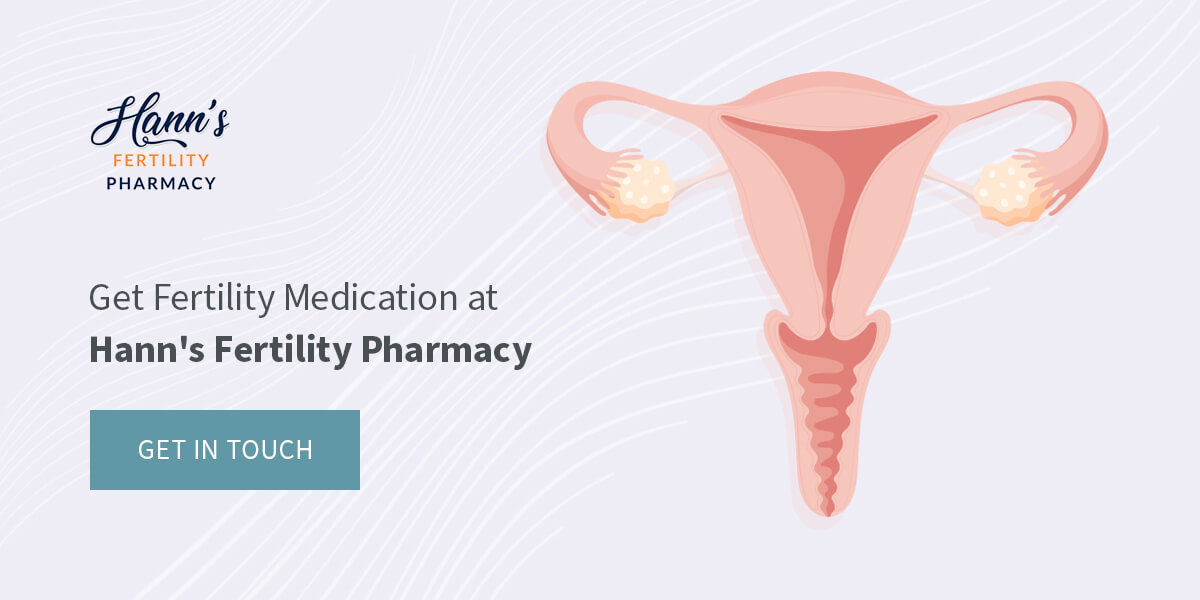
If you or someone you care about has just been diagnosed with endometriosis, you may feel overwhelmed as you navigate symptoms, causes, possible complications and available treatments. Read on to learn more about endometriosis and how you can cope.
What Is Endometriosis?
Endometriosis is a medical condition that affects women of reproductive age in which tissue normally inside the uterus grows outside of it. This tissue, called endometrium, can grow on other organs in the pelvic region, such as the fallopian tubes, ovaries and bladder. In rare cases, it can even spread to other parts of the body.
The primary symptom of endometriosis is severe pelvic pain during menstruation, but it can also cause chronic pain, heavy bleeding and infertility. The medical community has yet to determine an exact cause, but some experts believe endometriosis may be associated with hormonal imbalances, genetics or immune system disorders.
Endometriosis can sometimes be diagnosed through a pelvic exam, ultrasound or laparoscopy. Treatment options include pain medication, hormonal therapy or surgery to remove the endometrial tissue.
Endometriosis can significantly impact a woman’s quality of life, both physically and emotionally. It is essential for women to seek medical attention if they experience any symptoms of endometriosis to receive a proper diagnosis and treatment plan.
Who Is at Risk of Endometriosis?
The following factors may place women at a greater risk of developing endometriosis:
- Having a family member with endometriosis
- Having an abnormal uterus
- Starting the menstrual cycle before the age of 11
- Having menstrual periods shorter than 27 days
- Having immune system disorders
- Never giving birth
- Going through menopause at an older age
- Having heavy menstrual periods that last longer than seven days
What Are the Symptoms of Endometriosis?
Endometriosis symptoms can vary from woman to woman and may include the following:
- Severe pelvic pain during menstruation
- Chronic pain in the pelvis, lower back or legs
- Pain during sexual intercourse
- Painful bowel movements or urination during menstruation
- Heavy menstrual bleeding
Women with endometriosis may also experience infertility, as the endometrial tissue can block or damage the fallopian tubes, making it difficult for the egg to travel from the ovary to the uterus. Additionally, some women with endometriosis may experience fatigue, diarrhea or constipation.
The severity of endometriosis symptoms does not necessarily correlate with the extent of the condition. Some women may have severe endometriosis and experience few symptoms, while others with mild endometriosis may experience severe pain.
It’s essential to seek medical attention if you experience any symptoms of endometriosis. A doctor can perform a pelvic exam, ultrasound or laparoscopy or a combination of one or more tests to diagnose endometriosis and develop an appropriate treatment plan.
What Are the Causes of Endometriosis?

Endometriosis is a common and debilitating condition affecting approximately 10% of reproductive-age women. Despite its prevalence, medical experts don’t fully understand the exact cause of endometriosis. However, there are several theories about what may trigger the development of this condition:
- Retrograde menstruation: One theory is that endometriosis is caused by retrograde menstruation, which occurs when menstrual blood flows back through the fallopian tubes and into the pelvis, where it can implant and grow outside the uterus.
- Immune system disorder: An immune system disorder can prevent the body from sensing and eliminating tissue growing outside the uterus.
- Embryonic cell transformation: It’s possible for hormones like estrogen to transform cells in the first stages of development, known as embryonic cells, into endometrial-like cell implants during puberty.
Other theories suggest that hormonal imbalances, genetic factors, abdominal surgery and a diet high in red meat and low in fruits and vegetables can contribute to endometriosis development.
Further research is needed to fully understand the factors that contribute to the development of endometriosis and to develop more effective treatments for this common and often debilitating condition.
What Are the Complications of Endometriosis?
Endometriosis is a chronic condition that can cause significant discomfort and pain for many women. While the primary symptoms of endometriosis often include pain in the pelvic region, pain during periods and infertility, several potential complications are also associated with this condition.
- Infertility: Endometriosis can reduce fertility in many people, making it difficult to get pregnant. Endometriosis blocks the fallopian tube, preventing the egg and sperm from uniting.
- Ovarian cysts: Ovarian cysts are another common complication of endometriosis. Ovarian cysts are often referred to as endometriomas and can cause significant pain and discomfort. In some cases, these cysts may need surgical removal.
- Adhesions: Another potential complication of endometriosis is the development of scar tissue, also known as adhesions. Adhesions can form between the organs in the pelvic region, causing pain and discomfort. In some cases, adhesions may also cause infertility by blocking the fallopian tubes or preventing the egg from implanting in the uterus.
- Increased cancer risk: Endometriosis has also been linked to an increased risk of certain types of cancer, including ovarian and breast cancer. However, the overall risk is still relatively small, and further research is needed to fully understand this connection.
Women with endometriosis should work closely with their health care providers to manage their symptoms and reduce their risk of complications.
How Is Endometriosis Treated?
Endometriosis is a chronic condition that currently has no cure. However, several treatment options are available that may help manage symptoms and improve the quality of life for women with endometriosis:
- Hormonal therapy: One of the most common endometriosis treatments is hormonal therapy. This may include the use of birth control pills, progestin therapy or gonadotropin-releasing hormone (GnRH) agonists. These medications work to reduce estrogen production, which can help slow endometrial tissue growth.
- Surgery: In some cases, surgery may be necessary to remove endometrial tissue or adhesions. This may include laparoscopic surgery, which involves inserting a small camera and surgical instruments through small incisions in the abdomen, or a more invasive procedure called a laparotomy.
- In-vitro fertilization (IVF): For women who are experiencing infertility as a result of endometriosis, doctors may recommend assisted reproductive technologies such as IVF.
- Lifestyle modifications: In addition to medical treatments, lifestyle modifications such as a healthy diet, regular exercise and stress reduction techniques may also help manage symptoms of endometriosis.


